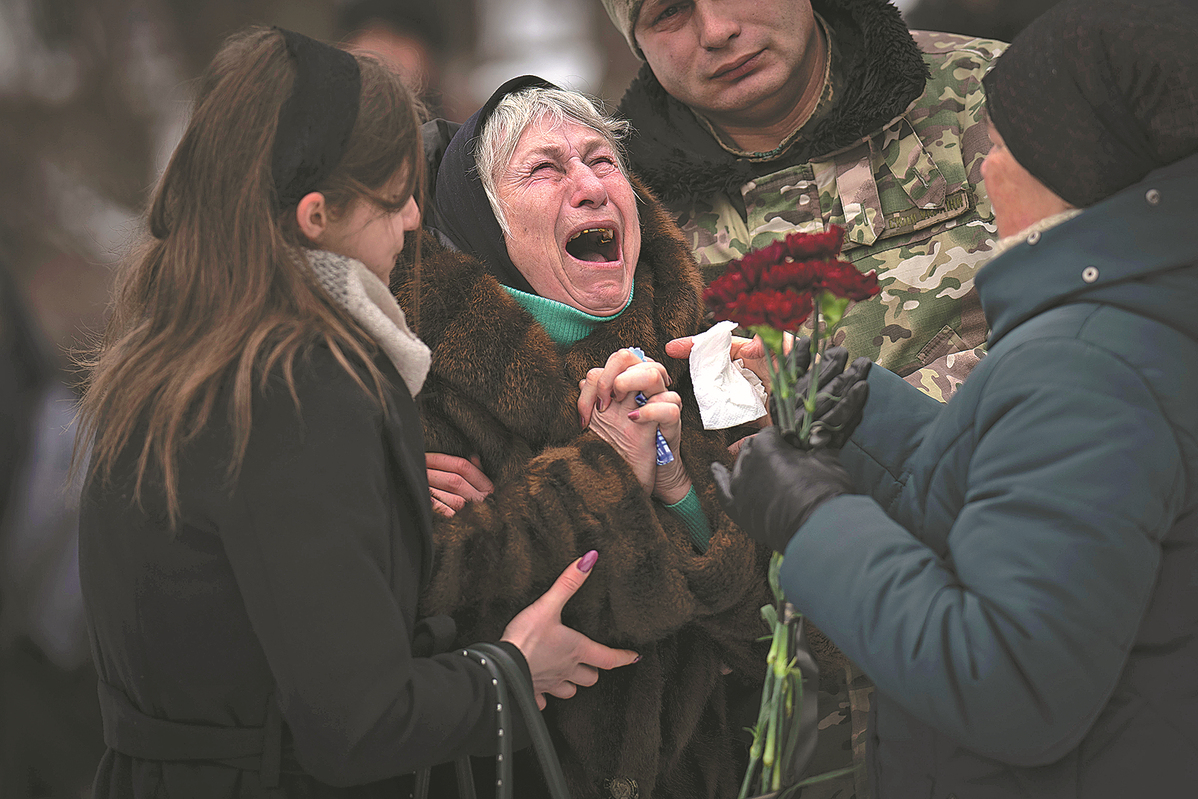Military bloc's expansion trigger for conflict: Experts
By XING YI in London | China Daily Global | Updated: 2023-07-10 07:23

As the Russia-Ukraine conflict has dragged on for over 500 days, the United States decided to send cluster munitions to Ukraine, a move that has sparked criticism among NATO members.
Providing cluster bombs to Kyiv was the latest move by the US and its allies to further escalate the conflict, and experts have pointed out that North Atlantic Treaty Organization's expansion toward the East was a major trigger for the Russia-Ukraine conflict and providing weapons to Ukraine could only worsen the situation.
Yet, the key agenda for the upcoming NATO summit in Vilnius, Lithuania, will be considering how to supply more weapons to Ukraine and when to let it join the organization.
Pere Ortega, president of Centre Delas, an independent research institute for peace studies in Spain, said one of the main causes of the current Ukraine crisis is NATO's eastward expansion since the 1990s and the pressure it has been exerting on Russia. "NATO promised (former Soviet Union leader Mikhail) Gorbachev that it would not expand toward Russia's borders, but this was an empty promise," he told Xinhua News Agency.
"After the end of the Cold War, NATO should have logically disappeared, but it didn't and is still looking for new enemies," Ortega said.
In his analysis of NATO after the collapse of the Soviet Union, Ortega said NATO bore the responsibility for the current crisis for the contempt shown toward Russia, which has repeated its demand that Ukraine does not join NATO, given the threat it posed to Russia's security.
Soon after the Warsaw Pact, Soviet Union's answer to NATO, ceased to exist in 1991, NATO started to forge partnerships with its former members. By 2009, every single former Warsaw State, except Russia, had joined NATO.
Even the key advocate of the containment policy, former US diplomat George Kennan, opposed NATO's enlargement. His view, expressed in New York Times before NATO invited Hungary, Poland, Czech Republic to join the organization in 1997, still resonates today.
"The view, bluntly stated, is that expanding NATO would be the most fateful error of American policy in the entire post-Cold War era," Kennan wrote. "Such a decision may be expected to inflame the nationalistic, anti-Western and militaristic tendencies in Russian opinion; to have an adverse effect on the development of Russian democracy; to restore the atmosphere of the Cold War to East-West relations, and to impel Russian foreign policy in directions decidedly not to our liking."
When NATO was established, it had 12 member states, now the number is 31. Expansionist policies as such run counter to the trends most countries are taking, Ortega said, adding that NATO's continued existence only serves the US' goal of maintaining its hegemonic power in control of the world's economy, and thus using force to break down, when necessary, the resistance of other competing states.
"We should be moving toward a partnership that guarantees common security, which is what the United Nations wants and which is the path we should take," he said.
Enlargement protested
Ahead of the upcoming NATO summit in Vilnius, a 24-hour rally "Peace Wave 2023" was organized around the world from Saturday to Sunday, during which peace activists protested against the NATO enlargement, the continued armament of Ukraine, and called for peace talks.
Lindsey German, convener of the Stop the War coalition in the United Kingdom, said: "NATO is not a force for peace, it's a force for war. …It wanted Ukraine and Georgia to be members of NATO, and they still talk about Ukraine joining NATO.
"Now the situation is such that many people are suffering on both sides of the conflict and the truth is that the only way to stop it is through peace negotiations and NATO is very much opposed to this," German said. "I fear that the NATO summit this week will be about escalating war, will be about more militarism, and more military being brought into the Ukraine battlefield," she said.
Chris Nineham, vice-chair of the coalition, said the amount of arms that have been pumped into Ukraine by the West has turned it into a "proxy war" between NATO led by the US and Russia on the other side, and "the first victims of it are the Ukrainian people".
"To make things worse, it risks a confrontation on a much wider scale, including the possibility for the first time, since World War II, the serious possibility of war between two nuclear-armed states," said Nineham.
xingyi@chinadaily.com.cn























